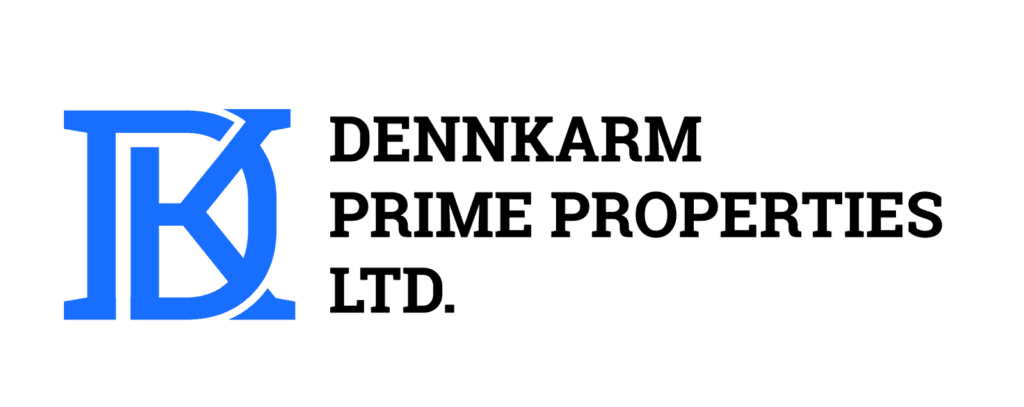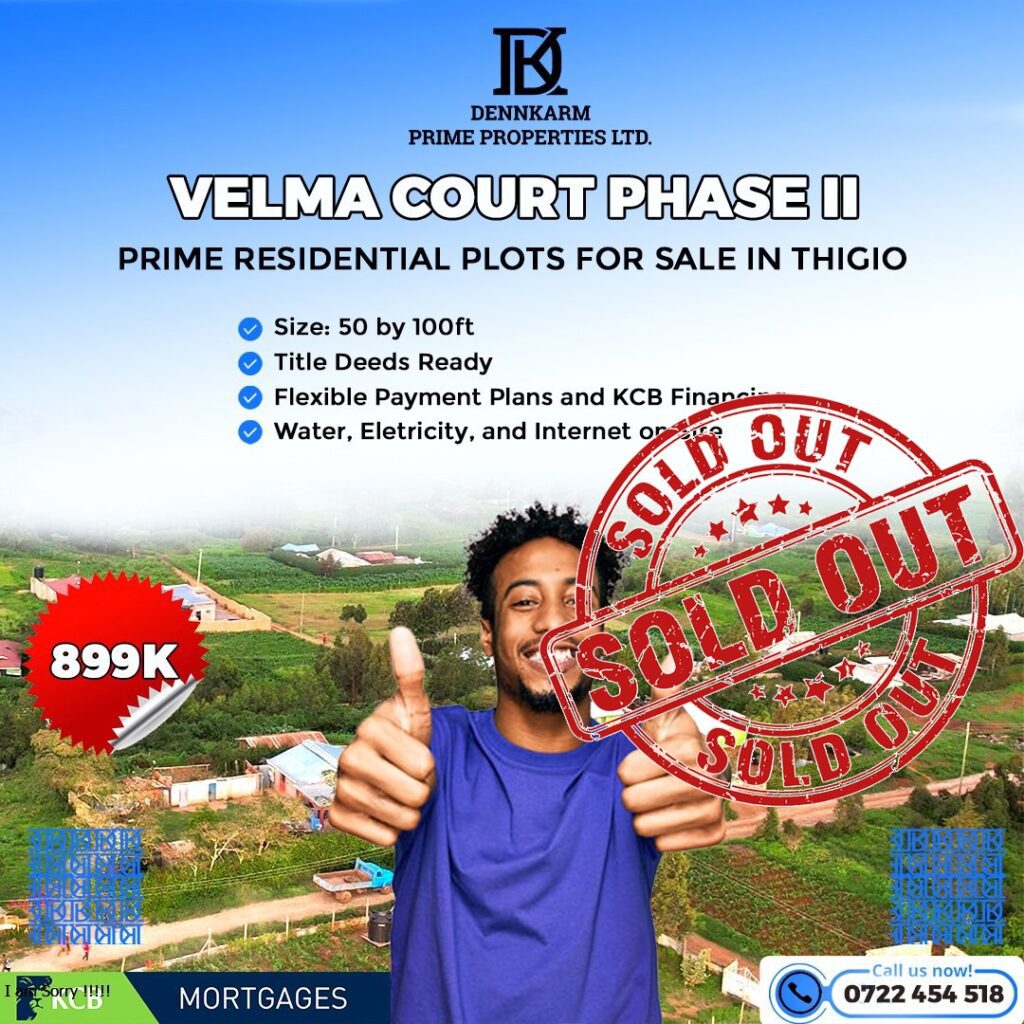Table of Contents:
- Introduction: Understanding Kenya’s Property Law Landscape
- Legal Ownership Types in Kenya
- Property Acquisition Processes for Foreigners
- Key Regulations on Land Use
- Registration Procedures and Requirements
- Understanding Tax Obligations for Investors
- Challenges and Solutions in Navigating Property Law
- Conclusion: Why Legal Compliance Secures Your Investment
1. Introduction: Understanding Kenya’s Property Law Landscape
Kenya’s property laws play a significant role in creating a stable and transparent investment climate. For real estate investors, especially those new to the Kenyan market, understanding these laws can help avoid legal complications. This guide by Dennkarm Prime Properties aims to simplify Kenya’s property legalities. It sheds light on Kenya property laws and key regulations for investors. This is especially true in emerging investment zones like Thigio in Kikuyu.

2. Legal Ownership Types in Kenya
Kenya has distinct legal ownership frameworks for property: freehold, leasehold, and customary ownership.
- Freehold: Allows full ownership rights to the landholder, with fewer restrictions.
- Leasehold: Involves ownership for a specified time, often 99 or 999 years, depending on property type and location.
- Customary Ownership: Found mainly in rural and indigenous areas, where land is governed by traditional customs rather than national laws.
These categories affect investor’s ability to sell, lease, or develop the land. For example, foreign investors can only lease land, not own freehold titles, which encourages partnerships with local landholders.
3. Property Acquisition Processes for Foreigners
While property acquisition for locals is straightforward, foreign investors face extra requirements. These investors are limited to leasehold titles and must obtain specific approvals from the Ministry of Lands and Physical Planning. This restriction shows foreign investors need to partner with established local real estate companies. These companies include Dennkarm Prime Properties, which offers plots in Thigio, Kikuyu.
4. Key Regulations on Land Use
Kenya has various land-use regulations focusing on sustainable and organized development. These laws impact what types of developments can occur in different zones, ensuring balanced urban planning. Investors need to familiarize themselves with these laws. They must understand any limitations on property use. This is particularly crucial for commercial or residential projects.
- Urban Planning Regulations: These regulations impact land in major cities like Nairobi, Mombasa, and Kisumu. In Kikuyu’s Thigio area, rapid urbanization has led to updated zoning regulations. These regulations aim to preserve the environment. They also support residential and commercial growth.
- Environmental Impact Assessments (EIA): Kenya mandates EIAs for certain developments, especially on larger plots. Compliance not only protects the environment but also aligns with legal requirements, saving time and costs on possible litigation.

5. Registration Procedures and Requirements
Registering property legally in Kenya is crucial to secure ownership rights. Here’s an outline of what the process entails:
- Title Deed Verification: Authenticating ownership details with the Ministry of Lands prevents falling victim to real estate scams.
- Submission of Forms and Documents: Completing Form RL7 is necessary for the buyer. Form RL9 is required for the seller. These forms enable the registration of property ownership transfer.
- Payment of Registration Fees: Fees vary depending on the property’s value but are usually 1-2% of the total property cost.
This process can seem overwhelming, but real estate companies like Dennkarm Prime Properties offer comprehensive support throughout the procedure.
6. Understanding Tax Obligations for Investors
Property tax compliance is essential to avoid penalties and maintain a profitable investment.
- Capital Gains Tax (CGT): Property sellers pay CGT on profits from property sales at a 15% rate. This applies to all real estate transactions. This includes those in Thigio, Kikuyu. Investors need to factor in CGT when calculating profits.
- Stamp Duty: Charged upon property transfer, stamp duty ranges from 2-4% of the property’s value.
- Rental Income Tax: Rental property owners are taxed on income received. This tax is 10% for rental properties below Ksh 10 million, while higher rates apply to more valuable properties.

7. Challenges and Solutions in Navigating Property Law
Despite the lucrative opportunities in Kenya’s real estate market, investors face certain challenges.
- Legal and Bureaucratic Hurdles: Navigating Kenya’s property registration processes requires familiarity with complex laws. To ensure a smooth process, investors can rely on experts at Dennkarm Prime Properties, who bring in-depth local expertise.
- Real Estate Scams: Land fraud is a concern in Kenya. Some common scams include selling non-existent plots and forging title deeds. Engaging credible companies like Dennkarm Prime Properties, which has established itself in the Kikuyu area, helps mitigate these risks.
- Title Deed Conversion: Kenya is transitioning to digital title deeds to increase transparency. The conversion process can be confusing. However, it is ultimately beneficial for investors. It minimizes fraud risks and simplifies ownership verification.
8. Conclusion: Why Legal Compliance Secures Your Investment
For any real estate investor, especially foreign buyers, ensuring compliance with Kenyan property laws is essential. Partnering with reputable local companies like Dennkarm Prime Properties makes this process more manageable. With offerings in high-potential areas such as Thigio, Kikuyu, Dennkarm is well-positioned to guide investors through these complexities.
Additional Resources for Further Reading
For more information on Kenya’s property laws and real estate investment guidelines, the following resources are helpful:
- Kenya Law Reports
- Ministry of Lands and Physical Planning
- Real Estate Regulations in Kenya – Deloitte Insights
- Capital Gains Now at 15%: What It Means for Property Sellers
- 4 Promising Up and Coming Real Estate Hotspots in Kenya
- 5 Best Ways to Finance Land in Kenya
You can also explore real estate investment opportunities with Dennkarm Prime Properties by visiting their official website, Dennkarm Prime Properties.




